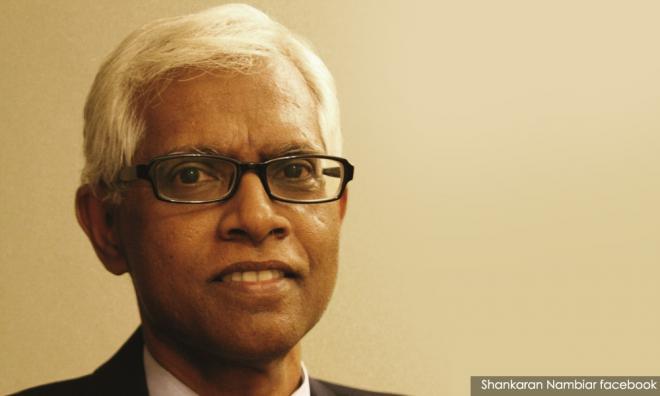
Malaysia is caught in the middle capacity trap, as it lacks the capability to undertake high technology projects that require highly skilled human capital, said an economist today.
Malaysian Institute of Economic Research (MIER) head of research Shankaran Nambiar (above) said the country is in this trap because its education is not of a high enough level, lacked creativity and innovation and limited in the research and development area.
"Malaysia is not endowed with an advantage in cheap labour, neither does it have an advantage in highly skilled labour and superior technology.
"For Malaysia to get out of the middle income trap, it has to get out of the middle capacity trap - and that's an issue that can be addressed through education," he added.
Shankaran's remarks came at a time when the country is in dire need of an effective and visionary education minister.
Maszlee Malik quit his job as education minister last Thursday, saying he was merely following orders of Prime Minister Dr Mahathir Mohamad.
But a report has surfaced claiming that Mahathir had urged Maszlee to do so for going against cabinet decisions.
Since then, many have expressed the need to pick a minister who will focus on upgrading the quality of education in the country, and not one who is more interested in political manoeuvring.
As the country awaits the announcement of a new education minister, Shankaran said there are two challenges that have to be tackled simultaneously: the domestic constituency and the global environment.
He said the global environment is not bothered what the domestic constituency wants.
He added that the Fourth Industrial Revolution (IR4.0) will flash past and so will Artificial Intelligence (AI), machine learning, data transmission technology and dozens of other technologies.
"The ability to master all these technologies will make a difference in what we produce and export," Shankaran told Malaysiakini.
"If we don't have the education, the expertise, we will continue to lag behind, unless we teach in the right way, prepare students to learn in the right way, they are going to carry their shoddy equipment and mindsets into their work environments."
Shankaran said while some aspects of education and training can be remodelled in the next couple of years, a more fundamental change can only be brought about after a longer period, perhaps 10 to 20 years.
Malaysia has to worry about the skills that can be picked up quickly (including programming skills, tool and die casting) as well as thought processes that may take a generation to develop he added.
"The world in the next 30 years will not be the same as the world we occupy today," said the author of "Malaysia in Troubled Times".
"We'll have a world with China as the largest economy (contributing 20 percent of the world GDP), with India as the second largest (15 percent), followed by the United States and with Indonesia in fourth place," he said.
Shankaran warned that the new technological trends in 2050 maybe "disruptive".
"But there will be a place for creativity and calligraphy if we know how to position ourselves in the new world economic order," said the former economics lecturer who hails from Penang.
"The start will have to come from a transformed vision of education as the enabler." - Mkini



No comments:
Post a Comment
Note: Only a member of this blog may post a comment.